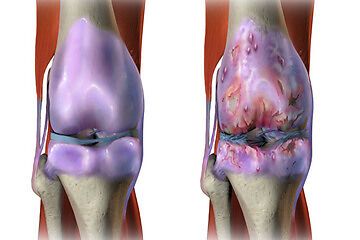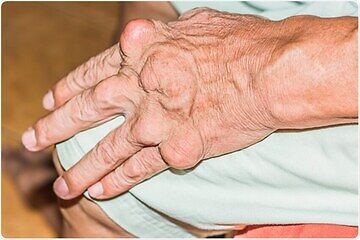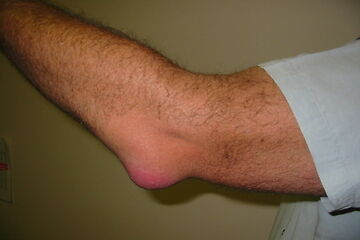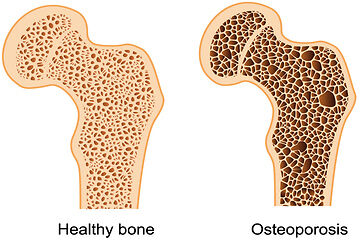What is Osteoporosis?

Osteoporosis is a condition in which bones become weak and brittle.
Bone is living tissue that is constantly being broken down and replaced. Osteoporosis occurs when the creation of new bone doesn't keep up with the loss of old bone.
What are the signs and symptoms of Osteoporosis?
There typically are no symptoms in the early stages of bone loss.
The possible signs that may help you out are:
- Back pain, caused by a fractured or collapsed vertebra
- Loss of height over time
- A stooped posture
- A bone that breaks much more easily than expected
Immediately contact your doctor if you notice any such signs.
What are the causes of Osteoporosis?
Your bones are in a constant state of renewal — new bone is made and old bone is broken down. When you're young, your body makes new bone faster than it breaks down old bone and your bone mass increases. After the early 20s this process slows, and most people reach their peak bone mass by age 30. As people age, bone mass is lost faster than it's created.
How likely you are to develop osteoporosis depends partly on how much bone mass you attained in your youth. Peak bone mass is partly inherited and varies also by ethnic group. The higher your peak bone mass, the more bone you have "in the bank" and the less likely you are to develop osteoporosis as you age.
Certain chronic conditions also may increase your risk of Osteoporosis, including diabetes and heart disease.
Diagnosis of Osteoporosis
To diagnose osteoporosis, your doctor will review your personal and family medical history, perform a thorough physical evaluation.
Some tests that are normally done are as:
- Your bone density can be measured by a machine that uses low levels of X-rays to determine the proportion of mineral in your bones. During this painless test, you lie on a padded table as a scanner passes over your body. In most cases, only certain bones are checked — usually in the hip and spine.
What are the complications of Osteoporosis?
A few of the comorbidities you may face with Osteoporosis are:
- Left untreated, People with osteoporosis can develop more-severe conditions, such as: Limited mobility , Pain .Tell your doctor if your signs and symptoms aren't improving despite treatment for Osteoporosis.
Prevention of Osteoporosis
Preventing and treating illnesses that can become the risk factor for osteoporosis is the best way to curb out it's complications. Make sure to change a few of your lifestyle habits and do regular physical exercise (not intense one). Talk to your doctor and take the help of a dietician who can suggest a decent diet to avert osteoporosis. A diet is a healthy component of Osteoporosis treatment in Ayurveda!





